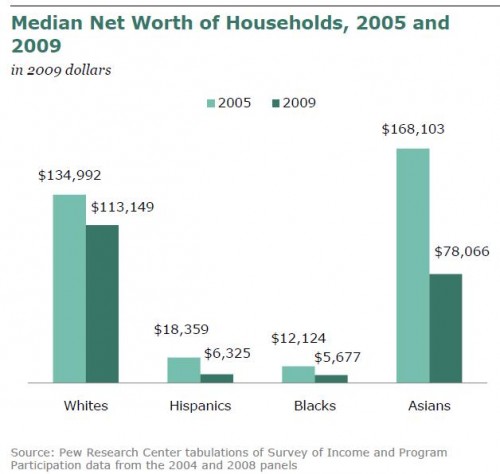Here are some case studies of the people we helped.
1. A HEALTH VISITOR’S REFERRAL
Jo’s health visitor made a referral to Home-Start Hillingdon because Jo was suffering from post natal depression after the birth of her daughter 1 month ago. Jo and her husband had 4 other children aged 2, 3, 8 and 17 years and were living in very overcrowded 2-bedroomed accommodation. An accident six months previously had left her with an injury which made walking difficult and for which she was still receiving physiotherapy. She was also caring for her elderly mother who was in poor health.
The referrer asked for both emotional and practical support from a volunteer.
How the volunteer helped
During the co-ordinator’s initial visit, Jo talked about the stresses in her life and became tearful. She badly needed a ‘listening ear’ as she was very isolated. She had been offered anti-depressant medication but had refused this as she ‘didn’t want to admit that something was wrong’. Jo was also having difficulties with the 3 year old, who was very clingy, and the 8 year old, who was having problems at school.
Sue began visiting Jo and her focus was to offer emotional support and ‘an extra pair of hands’. Sue’s visits had a calming influence on the situation and gradually she was able to support Jo through the range of difficulties the family was experiencing. The next 18 months was a roller-coaster of events but Sue’s warmth and commitment to the family were a source of comfort and reassurance to the family.
Sue’s support continued for 18 months, towards the end of which the family were re-housed into accommodation which met their needs. It was planned to end the volunteer’s visits shortly after the move but then Jo’s mother died and Sue continued to visit for another 2 months while Jo came to terms with her loss.
The mother’s feedback
On the feedback form, after the visits had ended, Jo wrote:
Sue was a wonderful friend to me and the kids loved her to bits. She was always helpful and even picked them up for school for me. She was always kind and loved to play with the kids. I know she was always busy but she never made a rush for the door. If I was up to my eyeballs with things she would just roll her sleeves up and do all she could to help me. She has a very gentle nature and I miss her very much. The kids still talk about her and wonder how she is.
Home-Start is very lucky to have her. I just wish the world was full of people like Sue as it would be a much better place.
The health visitor’s feedback
The service made a fantastic difference to the family.
2. THE STORY OF A HEALTH VISITOR’S REFERRAL
Sarah suffered a brain hemorrhage 15 years ago which resulted in some loss of sight and ‘dysphasia’ - a condition which causes her to have difficulty with her verbal communication. She also has severe migraines and occasional fits.
The health visitor made a referral to Home-Start after the birth of Sarah’s 2nd child which was delivered by Caesarian section. Sarah is unable to drive because of her medical condition and was finding it difficult to get out with a baby, Jon, and a boisterous toddler, Sam. In addition, her frustration at her limitations was causing her to feel stressed which, in turn, was increasing the number of migraines she was having. The referrer asked for both emotional and practical help from a volunteer.
How the volunteer helped
During the co-ordinator’s initial visit, Sarah confirmed what the health visitor had said and talked about her difficulty in coming to terms with the effects of her disability and the difficulties this caused her as a mother.
The volunteer, Vanessa, began her weekly visits to Sarah and the focus of support was identified in response to the areas of need identified with Sarah:
Feeling isolated- it was agreed that the volunteer would help TO reduce Sarah’s isolation by her weekly visits
Parent’s emotional health/well being - the volunteer to ‘lend a listening ear’ and to help build Sarah’s confidence by going out together
Parent’s physical health/well being - the volunteer to sometimes look after the children to allow Sarah to have a rest to help prevent stress-related migraines
Being involved in the children’s the volunteer to support Sarah in setting boundaries with Sam and supporting her with managing his toilet-training.
After 11 months, during the co-ordinator’s review visit, Sarah said that, although she would have liked Vanessa’s visits to continue forever, she felt that she was now managing and that another family probably needed the support more than she did.
It was agreed that visits would end but, as often happens in Home-Start, Sarah and Vanessa continue to see each other as friends.
The mother’s feedback
At the final review visit, Sarah said outings with Vanessa, including attending a parent and toddler group, had helped increase her confidence and that she now goes to yoga and singing classes. Vanessa had offered suggestions about managing Jon’s behaviour and Sarah intended speaking to her health visitor about parenting classes. Her migraines were also less frequent. Summing up how she had felt about the volunteer’s visits, she said:
‘When Vanessa arrived, I felt relaxed. I was like a weight was being lifted from me and I will always be grateful for her help.’.
3. THE STORY OF A REFERRAL
Julie and Derek were referred by their health visitor who felt that they were in need of support. The couple has two boys, William aged 4 and Dominic and 1 year. William had been diagnosed with Asperger’s Syndrome and his behaviour was very challenging and could be aggressive towards his brother.
Julie was concerned that she was not spending enough quality time with Dominic due to William’s demands. The situation was putting the parents under enormous strain which had contributed to Julie feeling depressed and needing to take anti-depressants in addition to medication for a chronic physical illness.
In addition, both parents worked hours which allowed one of them to be a home at all times and this was contributing to their feelings of stress. Throughout this visit, Julie was tearful and clearly feeling at the end of her tether.
How the volunteer helped
During the co-ordinator’s initial visit, both parents said that it would be helpful if a volunteer could play with the children to give Julie a break or play with one of the boys to allow her to have individual time with the other child. It was also agreed that, once the volunteer and the children had got to know each other, she would sometimes look after the children to allow the parents time alone.
A volunteer, Jackie, was introduced to the family and began to visit once weekly. During her support to the family she developed a close relationship with each of them. William started school, which helped considerably, and Jackie then took Dominic out alone. During the school holidays Jackie took both children for outings to the park or MacDonald’s during which time William was sometimes very challenging but this did not phase her as her commitment to the family was unswerving.
After 14 months the co-ordinator and parents agreed that the situation had progressed to a point where the volunteer’s visits could end. Julie was sad for this to happen but acknowledged that she was coping better, to a point where she had stopped taking anti-depressants.
The parent’s feedback
Without a doubt Jackie is one of the nicest people we have ever met. We feel blessed to have had her as our friend for over a year and we hope it continues. The boys are extremely fond of her – she has been a rock for us. We were desperate for help and she came upon us like a guardian angel at just the right time.
She was so reliable and nothing was too much trouble for her. I (Julie) will never forget how she helped me through one horrible day with loads of calls, empathy and support. The way she dealt with William is amazing and she never took it personally when he was having a bad day and took it out on her. I guess she was really accepting of him which is what he needs.
She has brought sunshine and laughter into a house where they were missing for a while. We all love her and will miss her warm loveliness. Thank you so much Linda and Home-Start for restoring our faith in humankind.
4. THE STORY OF A SELF REFERRAL
Meena rang Home-Start shortly after the birth of her twins. She had previously been working full-time in London and therefore had few contacts locally. Her husband was supportive but worked long hours, leaving early and arriving home late in the evening. Meena’s mother had recently become seriously ill so the arrangement for her to come and stay and help after the births could no longer happen.
Although she was thrilled with her daughters, Meena was exhausted and feeling overwhelmed by their demands. She was full of doubts about her competence as a parent and daunted by the responsibility of looking after two babies. In addition to this, she was struggling to cope with her fears about her mother’s illness.
How the volunteer helped
Judy began visiting Meena and they developed a relationship in which Meena was able to voice her fears about her mother’s illness which alleviated some of her anxiety.
Initially Judy agreed to visit twice weekly and reassured and encouraged Meena in her ability to look after the girls. Meena’s confidence quickly increased to a point where she could trust her own judgement about their care. Gradually she was able to recognise that, although having twins would always be hard work, she was not only competent to look after them but that she was really enjoying it.
Meena had always intended to return to work part-time and it was agreed that Judy’s support would cease at this point.
The mother’s feedback
During the final co-ordinator’s visit, Meena said “I could talk to Judy about anything! It was so useful to speak to someone who was independent of my family – she was a good ‘sounding board’”
After the volunteer’s visits ended, Meena wrote a letter expressing her thoughts:
Dear Linda
Please may I thank you once again for the support I received…..The care and concern you showed for my family over the last 6 months was both very timely and so welcome. We all appreciate the hard work that volunteers such as Judy do and she was very well-matched to our family. We loved having her here and do hope that she will keep in touch.
May I take this opportunity to say what a valuable contribution Home-Start Hillingdon makes to the community.
5. FEEDBACK FROM FAMILIES
Small things we do, we help families and intervene where very low cost assistance can avoid heavy cost intervention and assistance later on. And these are some of the decent interventions, some others are truly hairy. Our brave volunteers are all amazing, the pain they go through. To the families they are calm, positive and unflappable but hey, they are doing this without any monetary recompense but think about having to deal with this stuff day in day out? I would be screaming and be a basket case.



